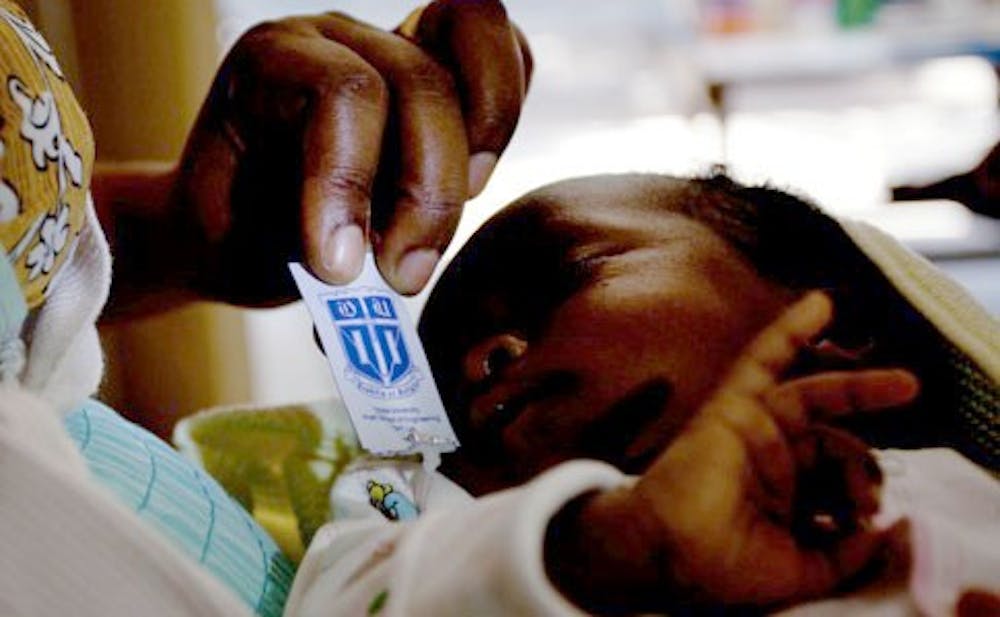Modeled after a ketchup packet, an invention made by a Pratt School of Engineering class could revolutionize the way antiretrovirals are delivered to newborns.
Robert Malkin, professor of the practice of biomedical engineering and director of Engineering World Health, and the students in his Design for the Developing World course developed the new antiretroviral delivery method—the Pratt Pouch—in 2011 and began testing it the following summer. Previously, the essential medication was delivered to developing countries in syringes, but the medication often dried up before reaching the pregnant mothers. By storing the medicine in the Pratt Pouch, the medicine does not dry up before reaching the developing countries.
The Pratt Pouch has gone through clinical trials, with 100 percent of mothers involved in the study reporting that they'd rather use the the pouch than other single-dose methods. The product has not yet been launched, but with increased funding it could be unveiled in China, Malkin said.
“If you buy a can of paint and put it on the wall, it is permanently a solid,” Malkin said. “It changes state because you change the surface to volume ratio. This is analogous to the problem the people are having with the syringe.”
An HIV antiretroviral is a medication that should be injected into a newborn within 24 to 28 hours of birth. The medication works to suppress HIV replication in the baby in order to reduce the chance that the virus will develop into AIDs.
Students in the Design for the Developing World course tackled the problem of constructing a device that would not only be transportable from the United States to unindustrialized countries, but also be operational to mothers in these developing countries.
“People in the developing world have never seen a package like this,” Malkin said. “It’s hard to develop for someone who has never seen anything like it."
Malkin explained that the ketchup packet design underwent three categories of testing—engineering, simulated use and actual use. The simulated testing examined undergraduates to see how long it took to open the pack, how much medication they got out of the packet, how much of the medicine was spilled and how much instruction was required. The next step is live testing of HIV positive mothers in developing countries.
Michael Maranzano, a first year Duke Medical student who worked on the ketchup packet project, initiated this next step when he went to Tanzania in the summer of 2012 to document the need for more research in developing countries, as well as the need for more funding.
“There are different disparities and access to health care,” Maranzano said. “It was Great to bring global care to people who couldn’t access them.”
Malkin clarified that they have not launched the product yet. He has reached out to several potential sources for increased funding, and hopes to soon unveil the product in China.
“I think it’s very impressive and a testament to all the available resources that Duke students have here,” noted Christina Sardo, a sophomore studying biomedical engineering. “It gives me hope that I will one day be able to contribute to the scientific community.”
Get The Chronicle straight to your inbox
Signup for our weekly newsletter. Cancel at any time.

